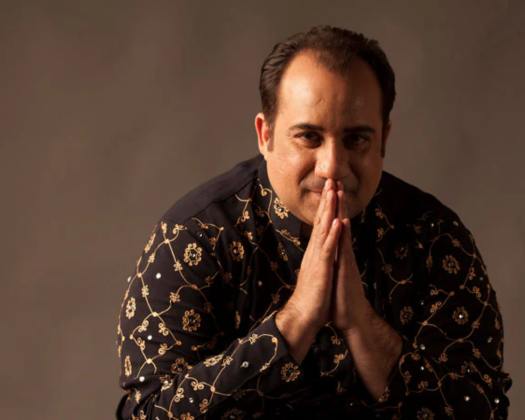Piyush Mishra: A Multifaceted Maestro of Indian Entertainment
Introduction:
Piyush Mishra, born as Priyakant Sharma on January 13, 1963, in Gwalior, India, is a renowned Indian actor, singer, lyricist, playwright, musician, and screenwriter. His journey in the world of performing arts has been nothing short of extraordinary, marked by versatility and excellence. This article delves into the life, career, and contributions of Piyush Mishra across various domains, from theatre to films and music.
Early Life and Background:
Piyush Mishra's early life was shaped in Gwalior, where he spent his formative years. Born as Priyakant Sharma, he was later adopted by his father's eldest sister, Taradevi Mishra. Growing up with a penchant for singing, painting, and acting, Mishra found his true calling in the world of theatre. Despite familial insistence on focusing on academics, his rebellious spirit and artistic inclination led him to file an affidavit in court, officially changing his name to Piyush Mishra during his school years.
Education and Entry into Theatre:
Piyush Mishra's formal journey into theatre commenced with his enrollment at the National School of Drama (NSD) in 1983. While he initially took the entrance exam with the intention of leaving Gwalior, his time at NSD proved to be transformative. He graduated in 1986, having already displayed his musical talents by composing the score for a student play titled "Mashreeki Hoor."
His breakthrough in acting came during his second year at NSD when German director Fritz Bennewitz cast him in the lead role of Hamlet, introducing him to unique acting techniques. During this period, Piyush Mishra also embraced communism, a political ideology that would influence his perspectives and activism for the next two decades.
Career:
Theater and Television:
Post his NSD graduation in 1990, Piyush Mishra embarked on a successful theater career in Delhi. He co-founded the Act One theatre group in 1990, alongside N. K. Sharma, Manoj Bajpai, Gajraj Rao, and Ashish Vidyarthi. The group gained acclaim for plays like "Gagan Damama Bajiyo," centered around the revolutionary Bhagat Singh. Mishra's directorial and acting skills flourished, and he continued to make significant contributions to the theatre scene.
In 1996, he joined the Asmita Theatre Group, presenting one-man shows like "An Evening with Piyush Mishra." His foray into television included roles in series like "Rajdhani" (1989) and "Bharat Ek Khoj" (1988). However, his heart remained in theatre, and he continued to shine in various productions.
Films:
Piyush Mishra made his film debut with Mani Ratnam's "Dil Se.." (1998), portraying a C.B.I Investigation Officer. His transition from playwright to screenwriter began with Rajkumar Santoshi's "The Legend of Bhagat Singh" (2002), where he wrote dialogues inspired by his play on Bhagat Singh.
Mumbai became his new home in 2002, and he rapidly established himself as a film lyricist, screenwriter, and actor. Notable films showcasing his acting prowess include "Maqbool" (2003) and "Gangs of Wasseypur" (2012), where his performances garnered critical acclaim. As a lyricist and singer, Mishra contributed memorable songs to films like "Black Friday" (2004) and "Gulaal" (2009), earning recognition for his poetic and impactful compositions.
Musical Endeavors:
Piyush Mishra's musical journey is exemplified by his project, "Ballimaaraan - The Piyush Mishra Project." This musical ensemble breaks genre boundaries, delivering a unique blend of storytelling and melodies that resonate deeply with audiences. Mishra's role as a composer, singer, and lyricist in this project showcases his diverse talents.
Personal Life:
In 1995, Piyush Mishra married Priya Narayanan, an architect he met in 1992 while directing a play at the School of Planning and Architecture. The couple resides in Goregaon East, Mumbai, with their two sons, Josh and Jai.
Discography:
Piyush Mishra's contribution to the music industry includes soul-stirring compositions, lyrics, and vocals. Some notable credits in his discography include "Aarambh Hai Prachand" (Gulaal - 2009) and "Ik Bagal" (Gangs of Wasseypur - Part 1 & 2 - 2012).
Filmography:
Piyush Mishra's filmography is an impressive tapestry of roles that showcase his acting prowess. From "Maqbool" (2003) to "Sanju" (2018), Mishra's performances have left an indelible mark on Indian cinema.
Conclusion:
Piyush Mishra stands as a colossus in the Indian entertainment industry, seamlessly traversing the realms of theatre, cinema, and music. His journey from a rebellious youth in Gwalior to a multifaceted artist in Mumbai is a testament to his unwavering passion and talent. Mishra's impact is not limited to his on-screen and on-stage performances but extends to his soul-stirring compositions and thought-provoking lyrics.
In a world often defined by specialization, Piyush Mishra's ability to excel as an actor, singer, lyricist, and more is a testament to his artistic brilliance. As audiences continue to be captivated by his performances and compositions, Piyush Mishra remains a stalwart, etching his name in the annals of Indian artistic excellence. His contributions have enriched the cultural landscape, leaving an enduring legacy for generations to come.






.jpg)


